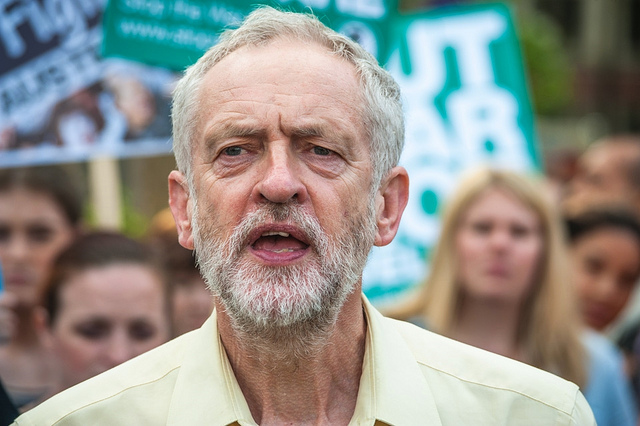Like this article? rabble is reader-supported journalism. Chip in to keep stories like these coming.
It’s tempting to say Donald Trump is all leader and no ship: no party inclinations in any recognizable forms, nor typical policies, organization, strategy or scripts. It centres on him alone. Except for a literal ship, labelled Trump, that he flies in on and speaks in front of. He likes it so much, he flies it home to New York each night to sleep in his bed — which is kind of touching — then drops in again next day.
A savvy journalist I know seems alone in having observed an uncanny similarity to the opening of Leni Riefenstahl’s dazzling Triumph of the Will (1935), about Hitler at Nuremberg. The opening shot has the Führer’s little plane hovering above thick clouds. Then, lo — an opening appears through which we glimpse the rooftops of the town and the plane descends, lands and the leader emerges.
I mention this not to compare Trump to Hitler — Trump of the Will, as it were — but, if anything, the opposite: the tropes of leadership are numerous and recurrent, and among them is the leader who comes among the clouds. Trump as trope.
U.K. Labour leader Jeremy Corbyn, on the other hand, who I spent much of this week talking about to despairing party members in London — seems the polar opposite: all ship and no leader: an MP for decades, full of policies, everything about him told in terms of party politics, yet he himself is barely there. He fades before your eyes — while eliciting fiery reactions from everyone else. He’s all suffix (-ship) with no preceding noun. And this is precisely his magnetism!
There’s now a full-blown leadership challenge to him, before he’s fought a single election — after being elected with unprecedented member backing. Why? After one of Corbyn’s shadow cabinet, Hilary Benn, was sacked (as they say) for plotting against his leader — being the U.K., foes are called regicides — Benn explained, “Jeremy is not a leader.” That’s what they all repeat. He won’t work ferociously, doesn’t build bridges or concoct complex strategies to ally with others and achieve power, utterly lacks charisma, seems uninterested in doing anything he hasn’t done for years. Yet somehow he hoovers up manic support.
So he’s no Bernie Sanders, despite comparisons. His many enemies in the party elite have coalesced behind one candidate (unlike JC they’re ruthlessly strategic): Owen Smith, or Jones — no one can remember. Since they recognize Corbyn’s appeal to the young and via the party’s radical roots, Owen what’s-his-name began by saying, “I am just as radical as Jeremy Corbyn.” Nothing else could have communicated old and fake as swiftly. Then his past as a PR hack for ugly drug companies and a supporter of the Iraq War emerged. But he checks those leadership boxes and the old hands will continue pushing for him.
At a house party in London, the hosts were moaning about Jeremy. When asked what his appeal could be, they said, “Oh, it’s like all those young people downstairs in the kitchen. Go ask them.” There is a mystery lurking here.
Is it possible we are living in a non-leadership moment? That leaderliness has been so formularized and commodified that it’s undermined itself, and people yearn for someone who reeks to boredom of not having those qualities?
Leadership can still win elections. Justin Trudeau did it with all the basics of the old formula, though in his own rendition — which is worth keeping in mind. But something else is also going on, especially in the aftermath of the quashed hopes that attended Obama’s coming. Would you rather have a victory for plausible principles or one for leadership itself without believable ideals? Because in the U.K. at the moment it seems impossible to have both elements.
Here’s another thought. Might you unexpectedly be able to acquire leadership qualities when you appear totally happy without them, like Corbyn?
Hm. I once wrote a play about a false Jewish messiah of the 1600s who attracted vast support with his come-and-go charisma and a seeming ability to fulfill the needs and yearnings of his time. The problem was casting the part. Most actors didn’t feel they had a messianic gear, a.k.a. charisma. But a director suggested: if everyone onstage treats you as the messiah, you’ll start feeling it. That may be near the truth of much success. It would be an interesting wrinkle.
This column was first published in the Toronto Star.
Photo: Jasn/flickr
Like this article? rabble is reader-supported journalism. Chip in to keep stories like these coming.



